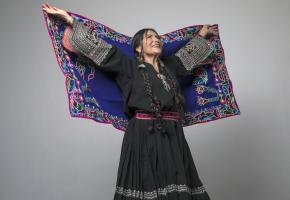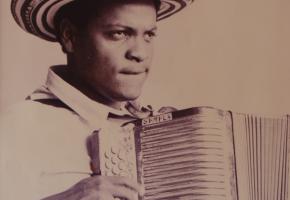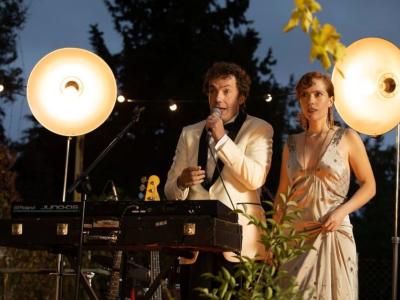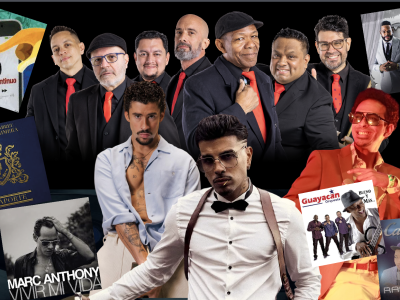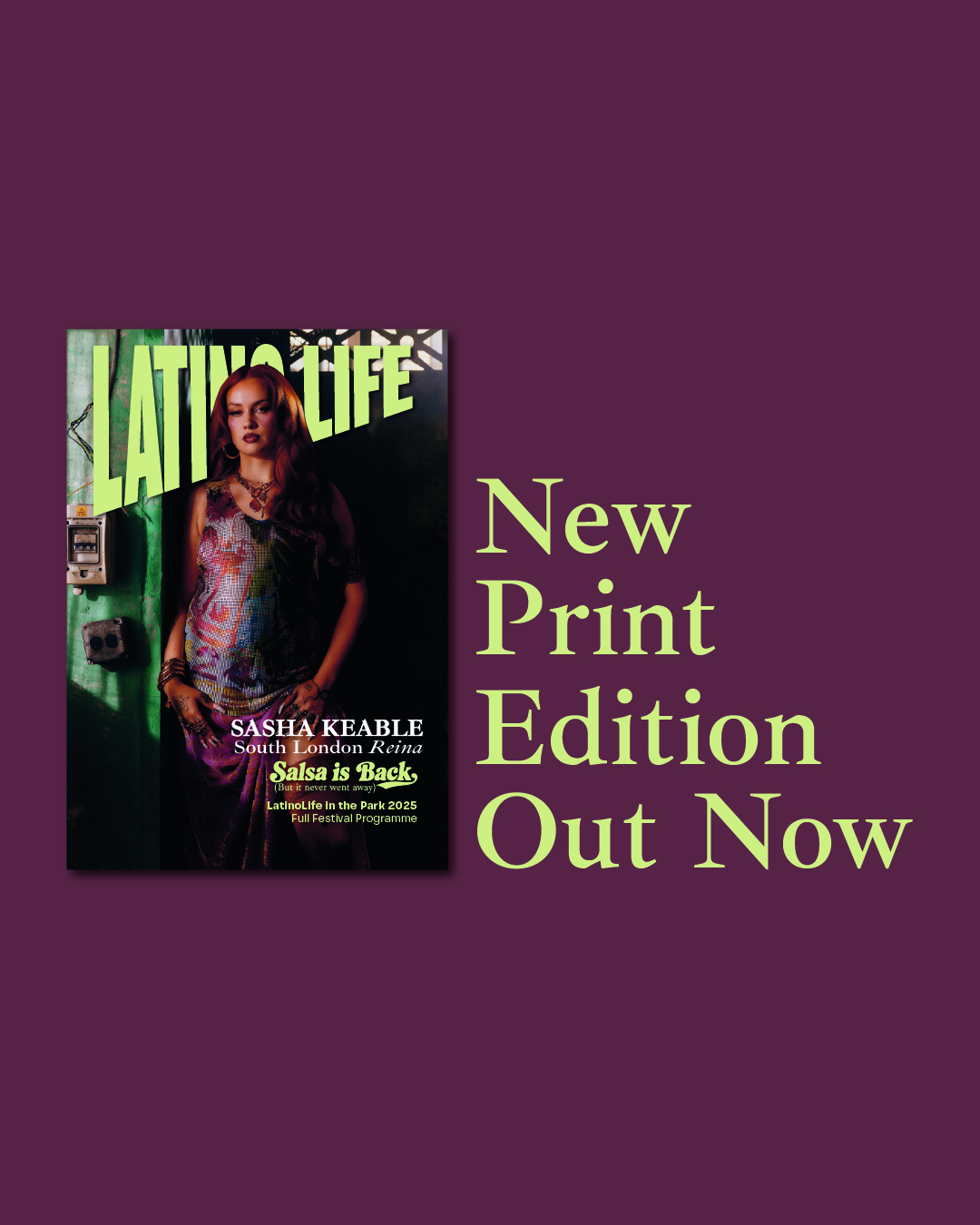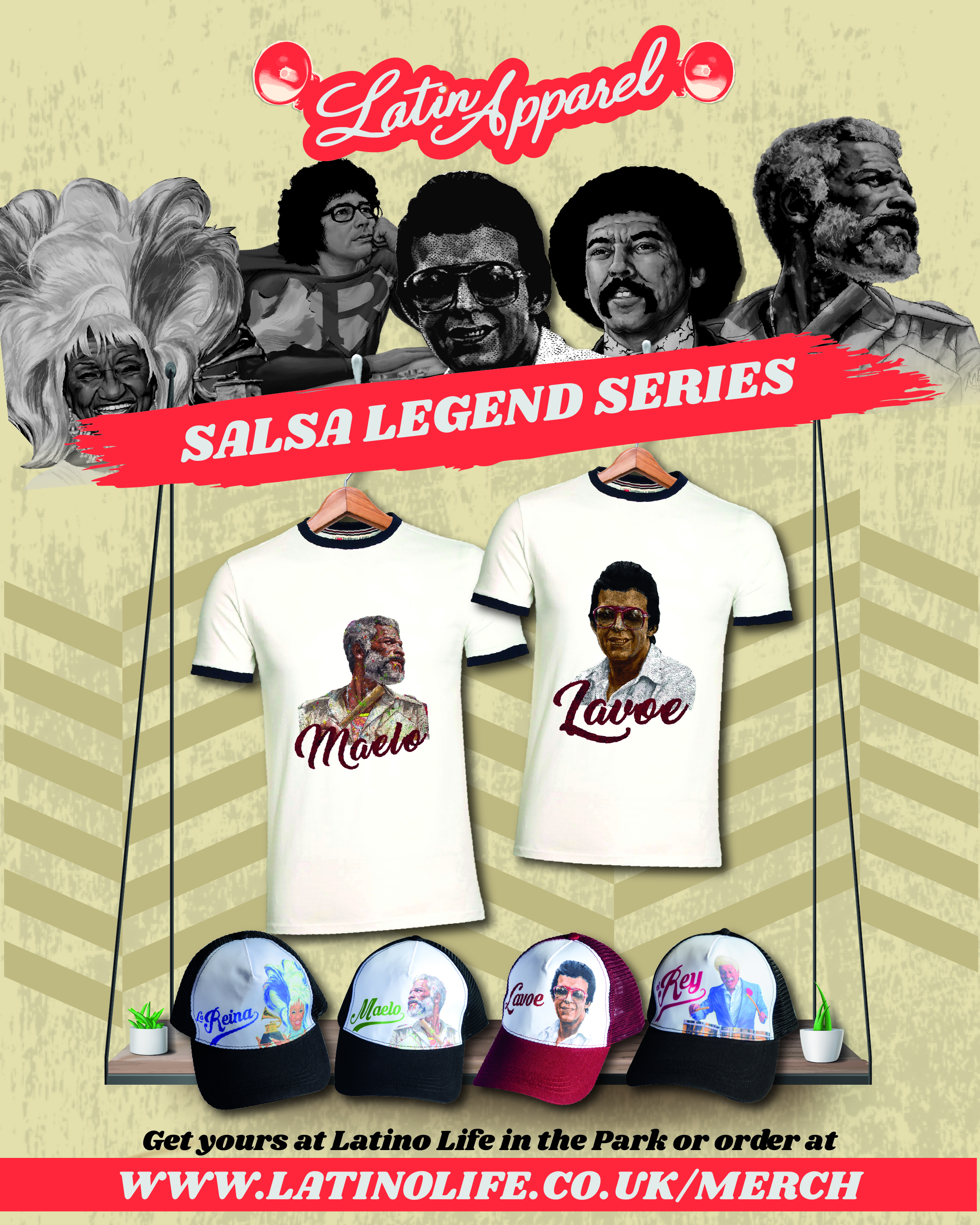“El Compromiso. You know, the feeling that you have to keep up with the rest of the family.” This is how Luisito Quintero explains what has driven him to become arguably the world’s greatest living timbal player.
Quinteros insists, adding. “Compromiso de apellido, compromiso de nación.”
Commitment to the family name, commitment to country...I reflect, trying to decide on an English translation. Or maybe responsibility. I settle with duty, and finally I understand.
To the music world, whether Jazz, Latin, Symphonic or Dance, the man known simply as ‘Luisito’ requires neither introduction, nor explanation, and least of all surname. He is the most sought after percussionist of his generation, working with with Jack De Johnette, David Sanborn, George Benson, Joe Sampler, Bill Cosby, Paul Simon, the late Celia Cruz and Tito Puente, Cachao, Eddie Palmieri, Marc Anthony, Gloria Estefan, Richard Bona, Toshiko Akiyoshi to name a few. He has earned more than thirteen Grammy certificate awards for his collaborations and is now a fixture with the legendary American Jazz pianist Chick Corea.
In the land of mere mortals, such achievements would far excel any family expectation. And yet, only in a family such as the Quinteros of Venezuela, is it imaginable that being a world class musician is merely fulfilling a ‘duty’ to the family name.
There is many an artist who lives in the shadow of his or her musical inheritence; Julian Lennon, Tito Puente Jnr., Arturo O'Farrill, to name an unfortunate few.
A fortunate few match and even surpass their predecessors; Cuba’s Chucho Valdez (son of Bebo) , Bebel Gilberto, (daughter of Joao), Enrique Iglesias (son of Julio), Gonzalo Rubalcaba, (son of Guilhermo) or Norah Jones (daughter of Ravi Shankar)
The achievement of the Quinteros is quite astonishing, Having produced three generations of world class musicians, however. It is a musical family tree, quite literally, in eternal spring.
Our legend begins with a matriach, of course: great-grandmother, Zoilá Incarnación de Jesús Quintero, pianist and singer in the legendary Afro-Venezuelan ensemble Grupo Madera.
Next come her five sons: Luis Quintero, father of Luisito, Ricardo and Jesús, all respected percussionists in Venezuela, the latter two dying, however, in a tragic boat accident in the Orinoco river.
The fourth brother, Rafael Quintero, became a band leader and composer in France.
The fifth, Carlos ‘Nené’ Quintero, was the first to gain major international recognition in the 1970s and 80s, playing with commercial giants such as Eros Ramazzotti, Celia Cruz, Gato Barbieri, Barry White and, more recently, dance music producer Little Louie Vega (Masters at Work, Elements of Life).
Then there are the grandchildren. Today the three cousins – Luisito, Roberto and Jesús (sons of Luis, the late Ricardo and Jesús) - enjoy grammy-winning international success as percussionists.
Roberto won a personalised grammy (as opposed to a certificate of participation) for his work with jazz vibraphonist Dave Samuel (Spiro Gira) and has also played with Jazz giants Dave Weckle and Richard Bona, to name a few.
Luisito’s son 22 year-old drummer Anderson Quintero, burst onto the international scene in Willie Colon’s group, and made his name in Venezuela independently of his father, who resides in New York, with the hugely successful junior salsa band Salserín. In 2011 Andreson won a Grammy for Chino y Nacho’s album “mi nina bonita”, played drums on “third element” by Luisito Quintero, and toured with salsa orquestra “Los Adolescentes” before settling in Los Angeles, California where he continues his musical career.
“That boy is incredible. He’s blowing us out of the picture already!” Laughs his uncle Roberto.
What is extraordinary, in the Quinteros’ case, is how the talent gene seems to have strengthened, rather than diluted, as it has been passed down through the generations. But it takes more than DNA to build on excellence.
So what’s the Quintero secret?
It’s difficult to imagine in Europe or the US the role that an extended family and community can have in nurturing talent, but this is the burning lamp at the heart of the Quintero family, fuelling its musical longevity. “I remember the Sunday jam sessions, the birthday celebrations where all the family members gathered to play, and the bellowing voice of my grandmother sweetening the air of the whole neighbourhood,” Says Roberto.
Each Quintero has grown up literally immersed in music ever since Great-Grandma and Grandpa Quintero moved to the Caracas slum of San Agustín from the countryside, like so many others escaping poverty. The neighbourhood has itself become famous as the capital of Afro-Venezuelan percussion and for its proliferation of Venezuela’s finest musicians.
“People came to that neighbourhood from all over the country, bringing with them their different music and cultures and an interest in sharing it,” remembers Nené. “So it became a kind of creative hub, not only of Afro-Venezuelan music but of Indigenous Venezuelan music and culture in general.”
Not all the families of San Agustín, however, have had the international success of the Quinteros. Robert and Luisito insist that two particular role models within the family provided the flowerbed of both skills and moral values on which the Quintero talent has blossomed.
“When my cousin and I became orphans at the age of ten, it was my grandmother and my uncle Nené that took us under their wing,” explains Roberto. “My grandmother always told us; ‘the responsibility is yours not ours, to improve yourselves and to be better than us. We can support you and provide the tools but the work you have to do yourselves.’
“Nené taught me about discipline, to do things with dedication and not in half measures and to nurture my talent,” Luisito agrees. “He taught us about showing respect to other musicians as well as the audience, through simple gestures like turning up on time.” “We were taught that you don’t buy talent in the corner shop, so you don’t take it for granted.”
“Even now at 65, Nené practices every day as if he was just starting out,” Roberto adds admiringly. “But the most important thing I learnt from Nené’s example, is that in order to be a great and complete artist you first have to be a great human being. He has admirers all over the world, not only as a musician but as a person and that is something I greatly admire.”
Indeed, even Anderson names his great-uncle as his mentor and greatest influence. It is almost uncanny, I suggest, the totality of admiration for this almost mythical figure.
“But it’s true!” Anderson laughs. “He is an amazing musician but an even more amazing human being. If you have a problem and you go to him he will always makes you feel better, he just has a gift that way of touching people.”
One has this image of a glowing light radiating energy and warmth to all around him. But, for Nené himself, it was just a question of having staying around, instead of following his international success to a life abroad. “I was never tempted to live abroad because I would have had to uproot my whole family when the kids were happy in school,” explains Nené. “That would have been very selfish.”
A seemingly inoccuous decision: but one which undoubtedly had a huge impact, especially on the careers of his nephews Roberto, Luisito and Jesus.
Instead of letting international success inflate his ego and overtake his music, Nene remained an emotional pillar for the family and a person the Quintero youngsters want to be. Just his nicknames: “El Maestro de la percusión” as he is known by the Venezuelan public and “El Tío Nené” to those who know him, imply two qualities - status and approachability - which you don’t always see together. When he is approached by young people, Nené says: “I make a point not to make it seem difficult and I always make sure I keep up with the sounds of the new generation so that it sounds relevant.”
At the same time as being accessible, neither Nené nor any member of the family has pushed or been pushed to carry on the musical tradition. If anything the opposite is the case.
“Nené was always very strict about us getting an education. We always had to do our homework before anything else. I was good at sport and competed internationally at Karate. I only decided I wanted to become a musician later. When I was 19 I went to my uncle Nené and told him I wanted to become a percussionist and he agreed to give me lessons. I became his busboy and worked very hard. Only later, when I was in my thirties did Nené give me a recording of me when I was six playing bongó and I realized I did actually have some talent!” It also took that long for Roberto find out that his father’s compositions were recorded Hector Lavoe, the legendary Puerto Rican singer, and La Sonora Poncenia.
The case of Anderson is similar. He was never told music was his destiny.
“I saw my father play and perform that way but we never practiced together. I mainly practiced by myself and then sought my own teachers when I needed to. I don’t know if this was intentional by him but I am glad it happened this way because I’ve developed my own personality and he never felt intimidated by him.”If there is a common Quintero trait that has accompanied the talent down the generations it is humility.
When I note on the busy schedule that has delayed our interview for weeks, Luisito replies “Thank god!” Even the world’s most in-demand percussion player does not take his next “job” for granted.
There is an innocent quality to what is evidently a deep-rooted Quintero confidence. “I’ve never felt the compromiso, like a pressure. I was born doing this, it’s just what I do,” says Andreson. And yet, even though success has meant the family moving up in the world, away from the old barrio, Anderson is well-aware of the lifeline that fuels him. “I practically grew up in San Aguustín. Everything I learnt, I learnt there, so going back there to jam and the contact with the neighbourhood is important to me, it keeps my feet on the ground and reminds me who I am.”




